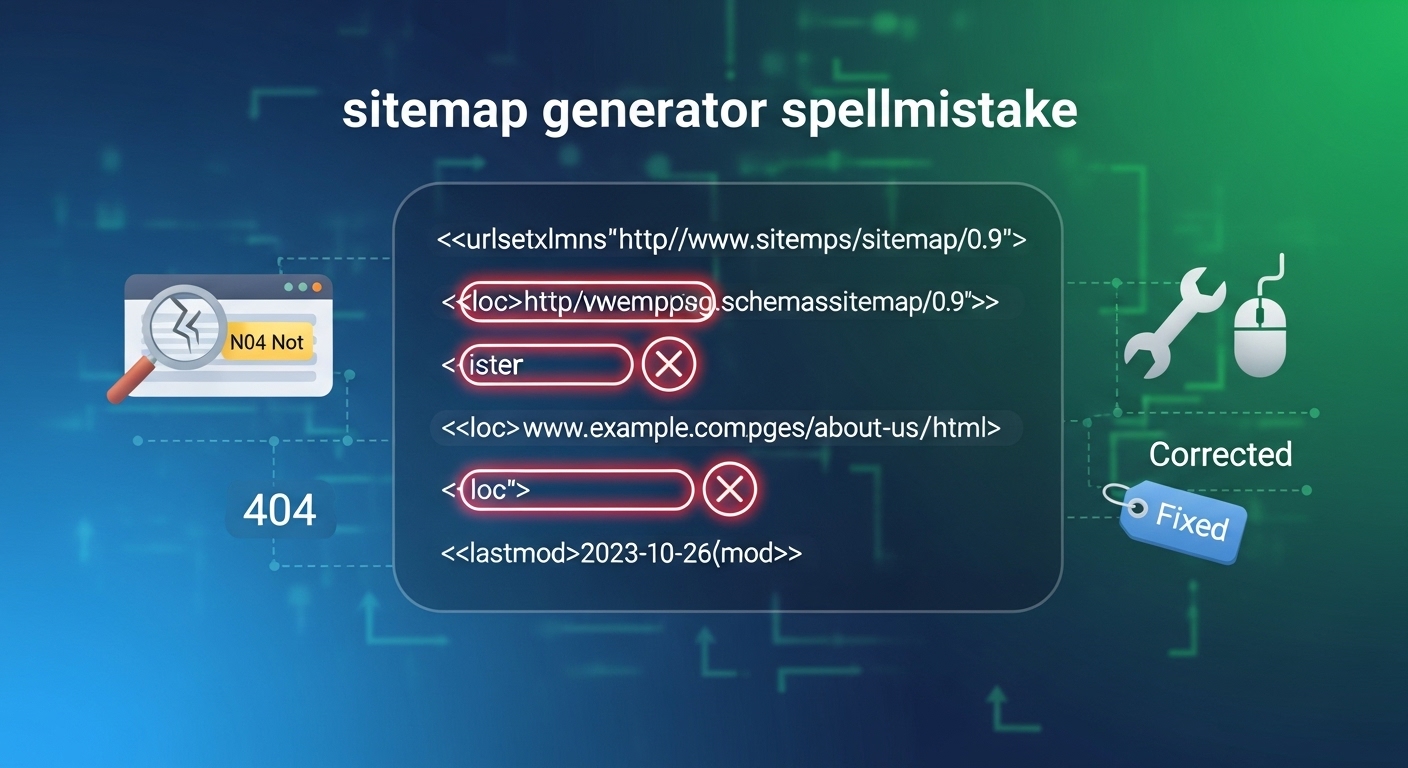A sitemap generator spellmistake may seem like a simple typing error, but in the digital world, even the smallest mistakes can affect SEO performance, indexing, and user trust. Understanding what this means, why it matters, and how to fix it can significantly improve your website’s technical health and visibility in search engines.
What Is a Sitemap Generator Spellmistake?
A sitemap generator spellmistake occurs when the tool or its user enters an incorrect term or path related to sitemap creation. This could include typos in URLs, file names, or commands when generating XML sitemaps. For instance, writing “siteamp.xml” instead of “sitemap.xml” is a classic example. While minor, such a sitemap generator spellmistake can cause your sitemap to be ignored by search engines, leading to poor crawling and indexing.
Many webmasters underestimate how impactful spelling or syntax errors can be in technical SEO. A small sitemap generator spellmistake could stop search engine bots from locating key pages on your site. This can directly influence how fast or how often your content appears in search results.
Why Sitemap Accuracy Matters
A sitemap is like a blueprint of your website. It guides search engines to every important page and helps them understand your site’s structure. However, if a sitemap generator spellmistake slips through, that blueprint becomes incomplete or broken.
When a sitemap file is generated incorrectly or saved under the wrong name, crawlers may not find it at all. As a result, your pages might not be indexed properly. Over time, this can reduce organic traffic and visibility. Fixing a sitemap generator spellmistake ensures that search engines like Google or Bing can efficiently crawl and interpret your content.
Common Causes of Sitemap Generator Spellmistake
There are several reasons a sitemap generator spellmistake can occur. The most common ones include human error, automated script bugs, or incorrect file naming. Sometimes, even capital letters or special characters in URLs can trigger a sitemap generator spellmistake.
For example:
- Typing “sitemap.XML” instead of “sitemap.xml.”
- Forgetting to include the sitemap location in the robots.txt file.
- Saving the file in the wrong directory.
Each of these mistakes may prevent proper sitemap recognition. Therefore, checking your sitemap manually after creation is essential to catch any sitemap generator spellmistake before submission.
How to Detect Sitemap Generator Spellmistake
You can identify a sitemap generator spellmistake using several reliable methods. First, open your sitemap URL directly in your browser (usually something like yourdomain.com/sitemap.xml). If you receive a 404 error or see incomplete data, there’s likely a spelling or path issue.
Another method is to test your sitemap using Google Search Console. Submitting your sitemap there allows Google to notify you about issues such as invalid paths, broken links, or unexpected formatting — all of which may stem from a sitemap generator spellmistake.
SEO professionals often recommend running a site audit using advanced tools to catch hidden technical problems. A deep audit can reveal how often a sitemap generator spellmistake might be preventing your pages from appearing in SERPs.
Best Practices to Avoid Sitemap Generator Spellmistake
Avoiding a sitemap generator spellmistake is mostly about attention to detail and consistency. Always double-check file names, ensure correct extensions (.xml or .txt), and validate your sitemap through official webmaster tools.
Here are some expert tips:
- Use automated sitemap generators from trusted platforms.
- Review generated files manually for typos or path errors.
- Maintain lowercase file names to prevent conflicts.
- Regularly update and resubmit your sitemap after major site changes.
By implementing these steps, you can prevent any sitemap generator spellmistake that may harm your indexing or crawling performance.
How Sitemap Generator Spellmistake Affects SEO
A sitemap generator spellmistake can silently weaken your SEO efforts. Without a valid sitemap, search engines may overlook new or updated content. In competitive niches, this can make a noticeable difference in traffic and ranking.
When a crawler encounters an error caused by a sitemap generator spellmistake, it might skip indexing your URLs. Consequently, some of your best-performing pages could remain invisible in search results. Therefore, it’s crucial to fix any sitemap generator spellmistake as soon as it’s discovered.
Conclusion
While a sitemap generator spellmistake may appear minor, it can have major SEO implications. Every detail matters when optimizing a website for search engines. By ensuring accurate sitemap generation, regularly validating your XML files, and monitoring your Search Console reports, you can maintain strong technical SEO and guarantee that every page receives proper visibility.
